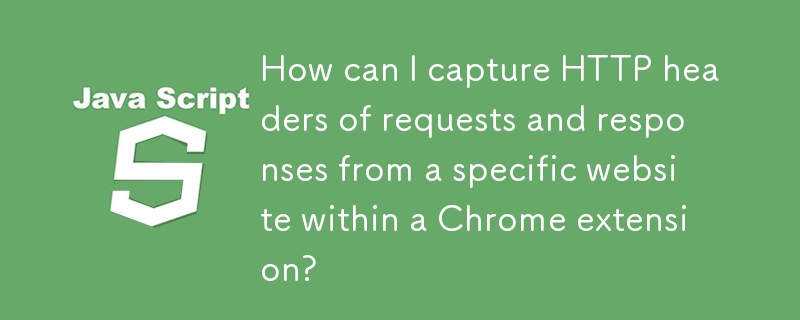

Read HTTP Responses in Chrome Extensions
Obtaining the header of a response received from a website in a Chrome extension is not straightforward. Chrome Extension APIs do not provide direct functionality like that for requests. However, an alternative solution exists.
By implementing a technique that injects a script into the DOM of a website, you can capture both HTTP requests and responses made by that website. Various methods exist for script injection, but one approach suitable for this task is ManifestV2/V3's declarative content script paired with injection.js.
inject.js:
var s = document.createElement('script');
s.src = chrome.runtime.getURL('injected.js');
s.onload = function() {
this.remove();
};
(document.head || document.documentElement).appendChild(s);injected.js:
This script injects into the page and intercepts requests and responses. It's inspired by a method described in How we captured AJAX requests from a website tab with a Chrome Extension.
(function(xhr) {
var XHR = XMLHttpRequest.prototype;
var open = XHR.open;
var send = XHR.send;
var setRequestHeader = XHR.setRequestHeader;
XHR.open = function(method, url) {
this._method = method;
this._url = url;
this._requestHeaders = {};
this._startTime = (new Date()).toISOString();
return open.apply(this, arguments);
};
XHR.setRequestHeader = function(header, value) {
this._requestHeaders[header] = value;
return setRequestHeader.apply(this, arguments);
};
XHR.send = function(postData) {
this.addEventListener('load', function() {
var endTime = (new Date()).toISOString();
var myUrl = this._url ? this._url.toLowerCase() : this._url;
if (myUrl) {
if (postData) {
if (typeof postData === 'string') {
try {
this._requestHeaders = postData;
} catch(err) {
console.log('Request Header JSON decode failed, transfer_encoding field could be base64');
console.log(err);
}
} else if (typeof postData === 'object' || typeof postData === 'array' || typeof postData === 'number' || typeof postData === 'boolean') {
// do something if you need
}
}
var responseHeaders = this.getAllResponseHeaders();
if (this.responseType != 'blob' && this.responseText) {
try {
var arr = this.responseText;
console.log(this._url);
console.log(JSON.parse(this._requestHeaders));
console.log(responseHeaders);
console.log(JSON.parse(arr));
} catch(err) {
console.log("Error in responseType try catch");
console.log(err);
}
}
}
});
return send.apply(this, arguments);
};
})(XMLHttpRequest);manifest.json:
{
"manifest_version": 3,
"name": "Extension Name",
"description": "Some Desc.",
"version": "1.1",
"content_scripts": [
{
"matches": ["*://website.com/*"],
"run_at": "document_start",
"js": ["contentscript.js", "inject.js"]
}
],
"web_accessible_resources": [
{
"resources": ["injected.js"],
"matches": ["*://website.com/*"]
}
]
}With this technique, you can access HTTP headers for both requests and responses within your Chrome extension.
The above is the detailed content of How can I capture HTTP headers of requests and responses from a specific website within a Chrome extension?. For more information, please follow other related articles on the PHP Chinese website!




